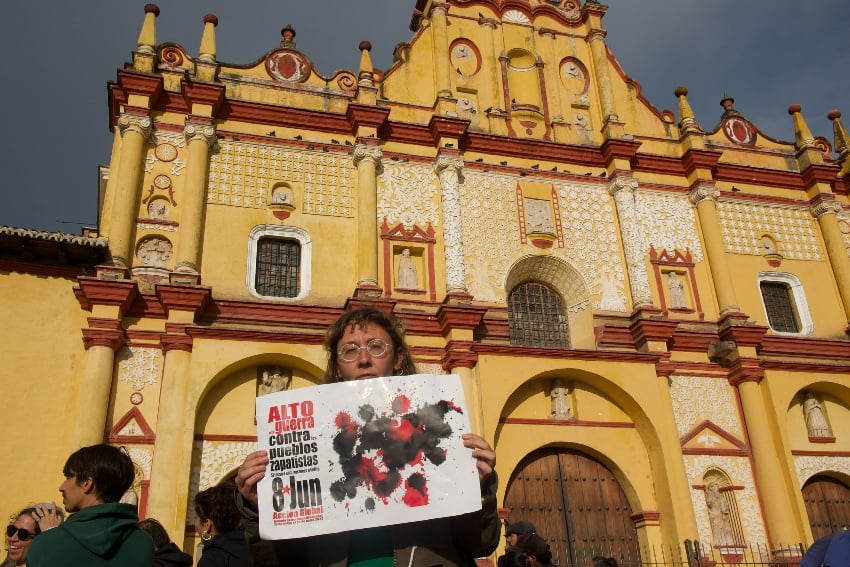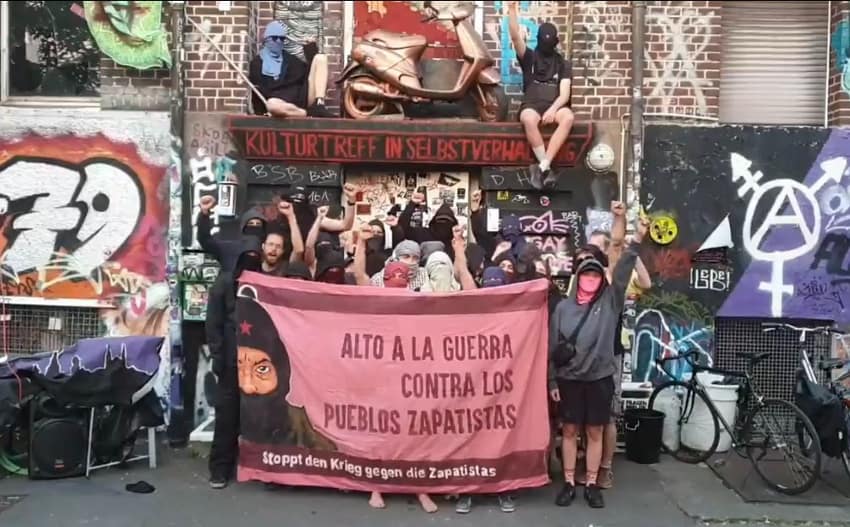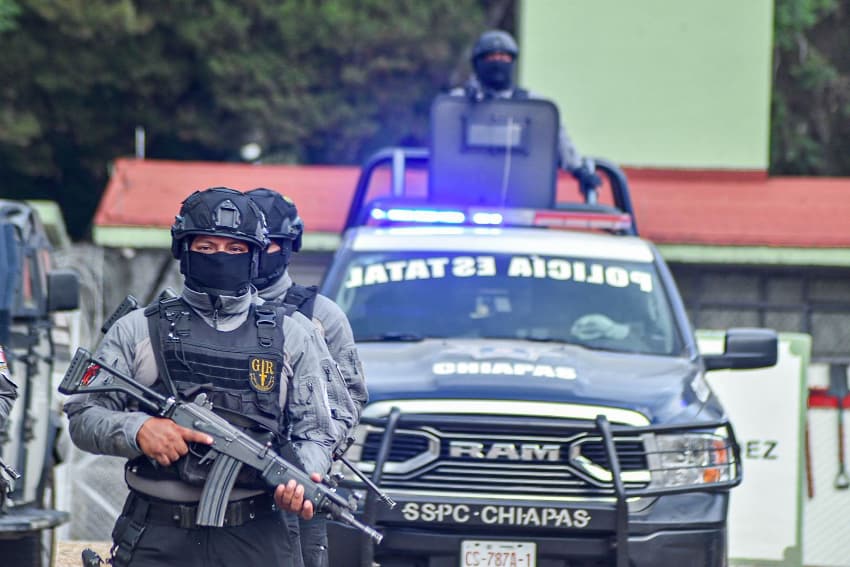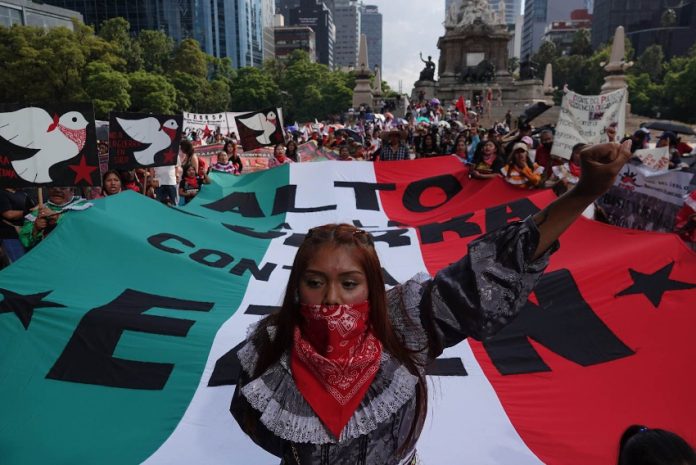The Zapatista Army of National Liberation (EZLN) and members of the National Indigenous Congress (CNI) marched in 21 Mexican cities on Thursday to protest the recent violence in Chiapas state.
The largest demonstration was in Mexico City, where thousands of protesters marched from the Angel of Independence monument to the city’s main square, or El Zócalo. The protesters called on federal and state governments to provide a solution to what they say is a potential civil war in Chiapas.

On June 1, hundreds of nongovernmental organizations and thousands of individuals endorsed a statement in support of the EZLN, which warned the state is on the brink of a civil war caused by conflict between paramilitary groups and cartels. The statement called for a mass demonstration on June 8.
“They fight for something good, for the peasants, who are the ones who suffer a lot, work a lot and are poorly paid,” protester Udelia García told El País newspaper, regarding the Zapatistas. “In Chiapas, there is a lot of violence against humble people.”
The EZLN is best known for staging an armed uprising in Chiapas in January 1994 before a ceasefire was agreed upon with the federal government.
“Instead of investing their work in a war, they have focused on building hospitals, schools and autonomous governments that have benefited Zapatistas and non-Zaptastias, [but] the governments from Carlos Salinas de Gortari to López Obrador have tried to isolate, delegitimize and exterminate them,” the June 1 statement read.

Experts who monitor violence in the region and the EZLN have warned of escalating violence for over three years.
“When Andrés Manuel López Obrador assumed the presidency, he spoke of solving the problem, but it is clear that he has not been willing to carry out solutions because he does not openly discuss the matter,” said Pablo Almaraz, a member of the National Indigenous Council.
“When this government came in, it said that there was going to be no repression, but nothing has changed,” said Joaquina, another protester who marched on Thursday.
At the end of May, thousands of people fled their homes in the town of Frontera Comalapa following an outbreak of violence near the border of Guatemala. Residents of Chicomuselo municipality have also reportedly suffered forced displacement in recent months.

Vania, a young woman from a Zapatista community who participated in the Mexico City march, claimed she lives in fear due to the attacks, which she said impact everyone regardless of their age or economic status.
“In Chiapas, these three weeks have been full of shootings and harassment at secondary schools, primary schools and coffee warehouses. [We demand] that they stop the war against Indigenous communities who only want their lands to work in peace, that the drug traffickers stop harassing them, that they stop sending drugs,” Vania said.
“We are frustrated, angry and disappointed, [it is] very sad that we have to travel here so we can raise our voices a little.”
